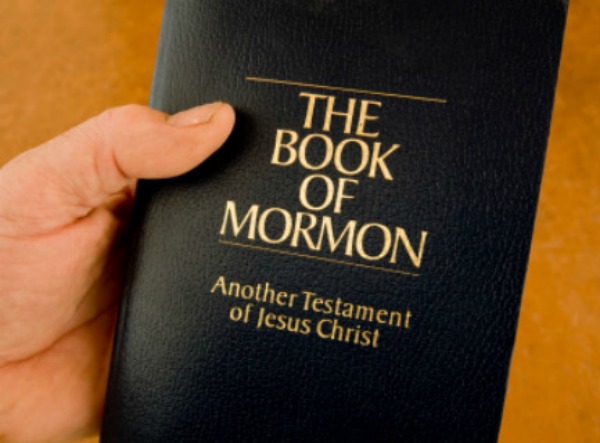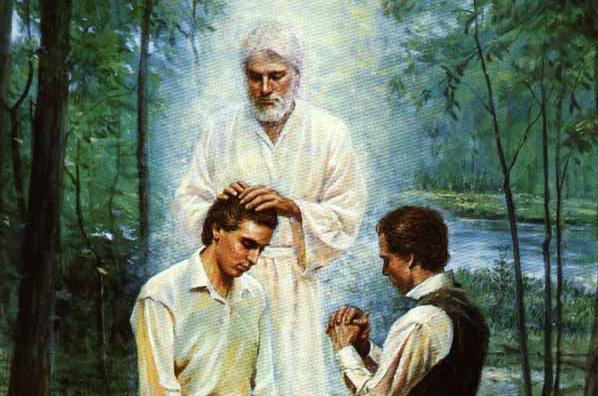Question
What does it mean to “turn your back to the priesthood” (a HC said this when interviewing me for the MP)? I’ve read D&C 84, but it isn’t clear on the “oath and covenant,” or what would specifically constitute turning my back?
Michael
Answer
Dear Michael,
If the interview was recent, or if you are still in contact with high councilor who interviewed you, I would ask him directly what he meant with the phrase “turn your back to the priesthood.” That said, I have known enough teenagers to feel uneasy answering questions that seem to be asking “just how close to the cliff can I get before I’m in trouble?” In the case of the Oath and Covenant of the Priesthood, the majority of the emphasis is on the great blessings the Lord promises as His part of the covenant.
[Faithful priesthood holders] are sanctified by the Spirit unto the renewing of their bodies. They become the sons of Moses and of Aaron and the seed of Abraham, and the church and kingdom, and the elect of God…; therefore all that my Father hath shall be given unto [them].
Latter-day prophets and apostles have focused largely on the blessings of the priesthood covenant and the faithfulness required to receive it rather than delineating when exactly someone has invoked the penalty of the covenant. It’s as if Church leaders would prefer to encourage repentance and growth instead of fostering discouragement. For instance, even when Elder Dale G. Renlund uses stern, unmistakable terms for the penalty, he still softens it with an encouragement to change.
Severe consequences result from breaking priesthood covenants and altogether turning from them. Being casual or apathetic in a priesthood calling is like introducing material fatigue into a rocket component. It jeopardizes the priesthood covenant because it can lead to mission failure. Disobedience to God’s commandments breaks the covenant. For a perpetual, unrepentant covenant-breaker, the promised blessings are withdrawn.
And below he adds, “Repentance is always possible for those willing to change.”
Elder Renlund has given us our first example of altogether turning from the priesthood covenant. Disobedience, apathy, or a casual attitude would certainly not contribute to “magnifying their calling,” but the extreme phrase “altogether turn” requires something more severe. Elder Renlund calls out the “perpetual, unrepentant covenant-breaker” from whom “the promised blessings are withdrawn.”
How is it that permanent cessation of priesthood duty is enough to trigger the penalty given that it is so awful? After all, the Lord said, “whoso breaketh this covenant after he hath received it, and altogether turneth therefrom, shall not have forgiveness of sins in this world nor in the world to come.” This makes it sound like this is the same penalty the sons of perdition receive. Marion G. Romney, who quoted the penalty associated with the Oath and Covenant of the Priesthood more than any other apostle in General Conference, gave this clarification:
Now, I do not think this means that all who fail to magnify their callings in the priesthood will have committed the unpardonable sin, but I do think that priesthood bearers who have entered into the covenants that we enter into—in the waters of baptism, in connection with the law of tithing, the Word of Wisdom, and the many other covenants we make—and then refuse to live up to these covenants will stand in jeopardy of losing the promise of eternal life.
Returning to the question of how to invoke this penalty, and perhaps capturing what your interviewer meant, Elder N. Eldon Tanner indirectly united two clauses of the Oath and Covenant of the Priesthood. “[A]ll they who receive this priesthood receive me, saith the Lord; For he that receiveth my servants receiveth me.” After quoting D&C 84, Elder Tanner talks about how the prophet is selected and the Lord’s role in that. From there, he quotes revelations about priesthood order, specifically that we are to listen to the First Presidency and other priesthood leaders. “This applies to every holder of the priesthood,” he adds.
At first blush, it seems strange to equate receiving the priesthood with receiving God’s servants, yet Joseph Smith taught the same. “This, then, is the nature of the Priesthood; every man holding the Presidency of his dispensation, and one man holding the Presidency of them all, even Adam; and Adam receiving his Presidency and authority from the Lord. The power, glory and blessings of the Priesthood could not continue with those who received ordination only as their righteousness continued…. It signifies, then, that the ordinances must be kept in the very way God has appointed; otherwise their Priesthood will prove a cursing instead of a blessing.” Receiving the priesthood, and magnifying their calling, means receiving and accepting priesthood leaders and the order that comes with it (and we also note the strictness of fulfilling priesthood duty that Elder Renlund drove home).
For examples of altogether turning away from this principle of the priesthood, I will give two extreme practices. First, it has become all too common to find fault in our priesthood leaders. These gripes run the gamut from administrative disagreements to pointing out personal flaws. The especially hardened will pick nits to the point they look like monkeys. The second happens when a priesthood holder overruns the bounds of his office. “We have learned by sad experience that it is the nature and disposition of almost all men, as soon as they get a little authority, as they suppose, they will immediately begin to exercise unrighteous dominion.” And “when [they] undertake … to gratify [their] pride, [their] vain ambition, or to exercise control or dominion or compulsion upon the souls of the children of men, in any degree of unrighteousness, behold, the heavens withdraw themselves; the Spirit of the Lord is grieved; and when it is withdrawn, Amen to the priesthood or the authority of that man.” (D&C 121:39, 37).
This is by no means exhaustive, but altogether turning away from the priesthood covenant can involve a continued neglect of priesthood duty. It can also include perpetual backbiting against local and general leaders the Lord has called. On a related note, it can even mean pretending to authority he doesn’t have. In all this, the invitation remains, “Repent ye therefore, and be converted, that your sins may be blotted out, when the times of refreshing shall come from the presence of the Lord.” (Acts 3:19).
Gramps







